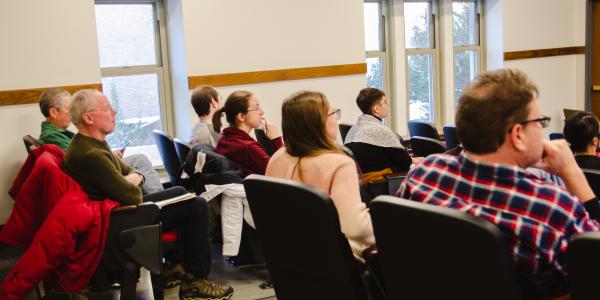The Concept of a Person
Abstract: I'll introduce four claims about the concept of a person, each paralleling one of the central theses of G.E.M. Anscombe's Intention. These are: (1) That the concept of a person has reference to a form of description of particular entities. (2) That the extension of this concept can be identified by considering the conditions in which the questions "Who?" and "Whom?" are given application. (3) That in ordinary speech, these questions are answered positively through statements in which words like "he" and "him", "she" and "her", "I" and "me" and "you", "someone" and "somebody", "we" and (in a special sense) "they", as well as proper names and the special class of nouns of social role, such as "chef", "teacher", "grandmother", and "priest", appear in the subject or object place. (4) That in ordinary speech, we express the judgment that there is only one person who is, say, both F and G just by giving the questions "Who is F?" and "Who is G?" the same answer, usually through repeated (or anaphoric) use of singular terms that refer to the person in question. In connection with thesis (4) I'll present the results of some experiments in which it's been put to work.

